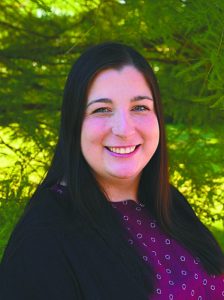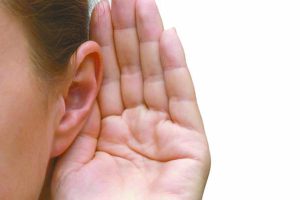September 1, 2025
Ask the Audiologist
‘I have hearing aids and I’m still struggling to hear; What should I do?’
 By Shelby Garrison, Au.D.
By Shelby Garrison, Au.D.
Audiology Consultants, P.C.
As an audiologist, one of the most common concerns I hear from patients is: “I have hearing aids, but I still can’t hear well in certain situations.” It’s important to understand that while hearing aids are powerful tools, they are not a cure for hearing loss. Even with the best-fitting sets of hearing aids, there are always going to be situations or environments that are difficult to hear clearly in. If you’re still struggling, you’re not alone—and there are several options or steps you can take to improve your hearing experience.
1. Schedule a Follow-Up Appointment
First and foremost, return to your audiologist for a follow-up appointment. Hearing aids are not one-size-fits-all devices. They require fine-tuning based on your hearing thresholds, listening environments, your physical ear “acoustics” and patient feedback. Sometimes a small adjustment to the amplification settings, noise reduction features, or directional microphones can make a world of difference. If you haven’t had a follow-up in a while, it’s time to check in.
2. Consider a Hearing Aid Upgrade
Technology in hearing aids has advanced significantly in recent years. If your devices are more than 3–5 years old, they may lack modern features like advanced background noise suppression, Bluetooth connectivity, or AI-based sound processing. Today’s premium hearing aids can better handle challenging listening environments, such as restaurants or group conversations. Your audiologist can help determine whether a technology upgrade is worth considering.
 3. Use Assistive Listening Devices (ALDs)
3. Use Assistive Listening Devices (ALDs)
In some cases, even the best hearing aids need a little help. Assistive listening devices (ALDs), such as remote microphones, table microphones and TV streamers can significantly improve your hearing in difficult settings. These devices work by transmitting a speaker’s voice directly to your hearing aids, bypassing background noise and distance. ALDs are especially helpful for watching television and in places like lecture halls, places of worship, or noisy meetings.
4. Check for Wax or Fit Issues
Sometimes, the problem isn’t with hearing aid technology; it’s a physical issue. Earwax buildup can block sound and reduce the effectiveness of your devices. Likewise, if the hearing aid isn’t seated properly in your ear or if the earmold is old or cracked, sound quality can degrade. A simple cleaning or fit check could resolve your concerns quickly.
5. Practice Listening and Communication Strategies
Hearing with hearing aids is a skill that improves with practice. Your brain needs time to adapt to the new way it processes sound. Consider working with an audiologist or auditory therapist on listening exercises. Additionally, learn and use communication strategies: Face your conversation partner, reduce background noise, ask for clarification when needed, and ensure good lighting so you can see facial cues and lip movements.
6. Get a Realistic Expectation Check
Sometimes, frustration stems from unrealistic expectations. Hearing aids amplify sounds, but they don’t restore hearing to normal. Much like wearing glasses for low vision, hearing aids have limitations. An honest conversation with your audiologist about what your hearing aids can and cannot do can help set expectations and reduce frustration.
7. Explore Group Aural Rehabilitation Programs
Group rehabilitation classes can provide both training and emotional support. These programs often include listening exercises, communication strategies, and shared experiences from others with hearing loss. Many patients find comfort in knowing they’re not alone, and they often pick up tips that make day-to-day hearing easier.
Final Thoughts
Struggling to hear despite wearing hearing aids can be discouraging, but it doesn’t mean the devices have failed—or that you’re out of options. As your audiologist, I want to partner with you to improve your quality of life. With the right adjustments, tools, and strategies, most patients find substantial improvements. Don’t hesitate to reach out! We’re here to help you hear your world better.
Shelby Garrison is an audiologist at Audiology Consultants, P.C. For more information, visit audiologyconsultants.com. Stores are located in Davenport, IA, Muscatine, IA, Moline, IL, and Geneseo, IL.
Filed Under: Community, Family, Health & Wellness, News, Technology
Trackback URL: https://www.50pluslife.com/2025/09/01/ask-the-audiologist-156/trackback/


